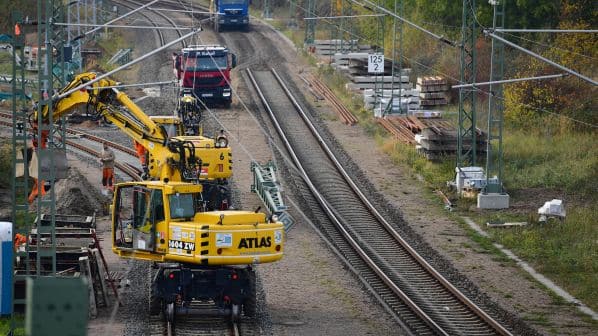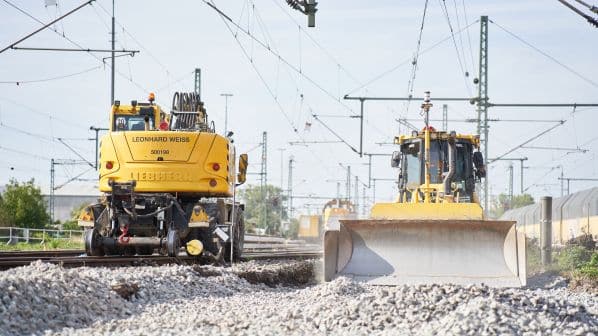THE Supervisory Board of German Rail (DB) has approved the merger of its two infrastructure divisions, DB Station&Service and DB Network, to form DB InfraGO, which will become active from January 1 2024.
The merger is consistent with the German coalition government’s commitment to reform DB as it attempts to address the reliability issues that have plagued the railway in recent times.
The government confirmed in a parliamentary response to a question on September 20 that the new infrastructure division would be entirely owned by DB and that in a first step the company would be established as a stock corporation within DB.
While InfraGO is expected to turn a profit, it is foremost objective is to meet the government’s demand to improve the condition and resilience of railway infrastructure - DB says the “GO” stands for InfraGO’s emphasis on delivery for the public good.
Among its key tasks is managing the work to upgrade infrastructure on 40 routes up to 2030, which was announced earlier this month. The government clarified a €40bn additional commitment to support this work. Overall, it is spending more than €80bn on refurbishing the network up to 2027. The cabinet also launched a process to reform the Federal Rail Infrastructure Expansion Act (BSWAG) in June, which will provide additional flexibility in the use of financial resources and new funding opportunities for the federal government.
The government adds that further steps in the merger process will take place after the formal completion on January 1. It says it will also continue its dialogue with important players although there are currently no plans to publish an overview of specific measures.
DB says InfraGO is expected to deliver demand-oriented, efficient railway infrastructure with high capacity, quality and resilience. The new infrastructure company is also aiming to promote cross-border rail transport as well as innovation and climate protection, in particular through modal shift of passenger and freight transport, DB adds.
“The merger of the two infrastructure divisions to form DB InfraGO is a major reform step for the railways in Germany,” says Mr Werner Gatzer, chairman of DB’s Supervisory Board. “With today's resolutions, we have created a further corporate law requirement for the infrastructure oriented towards the common good. This is another essential pillar of our comprehensive programme for renewal and modernisation.”
Dissatisfaction
There is dissatisfaction with the move amongst organisations representing independent railway groups in Germany.
Addressing reports concerning the planned merger before the announcement was officially made, The Federal Association of Local Rail Transport, the Network of European Railways (NEE) and Mofair, which represents independent operators, described the development as “inexplicable.”
“Because of the future goals through changed management, financing and control right down to data transparency, it is unclear what part of this solution will be more 'common good-oriented' than the obviously failed model with the two well-known DB stock corporations,” the groups said in a joint statement.
They add that the benefits of the merger are small: improved coordination within DB regarding the interface between stations and the wider network, and compliance with the start date set by the minister. There is also dissatisfaction over the plan for profits to remain within the InfraGo and funding to come directly to it from government, the compromise reached to allow the infrastructure unit to remain within DB. There is a belief that this will still enable profit within the infrastructure division to prop up DB’s overall balance sheet.
“The rail sector associations fundamentally saw this coalition project as an opportunity to clearly regulate the distribution of roles between the federal government as owner and the new infrastructure division, to improve the performance and reliability of the rail network, to align the rail infrastructure more closely with user interests and to develop the rail infrastructure more consistently with transport and climate policy goals.
“However, DB’s continued authority to give instructions to the new InfraGO counteracts the independence and public welfare orientation of the new infrastructure division. It doesn't help that the supervisory board can, if necessary, override DB’s vote. This creates completely inefficient structures that hinder rapid and independent public welfare.
“Rather, it would be correct for legislators and the government, after broad and open-ended consultation of the new InfraGO, to give concrete specifications for the upcoming renovations or expansion of the infrastructure of tracks and stations on the basis of a long-term implementation plan, and also specify the sequence of central measures.”


